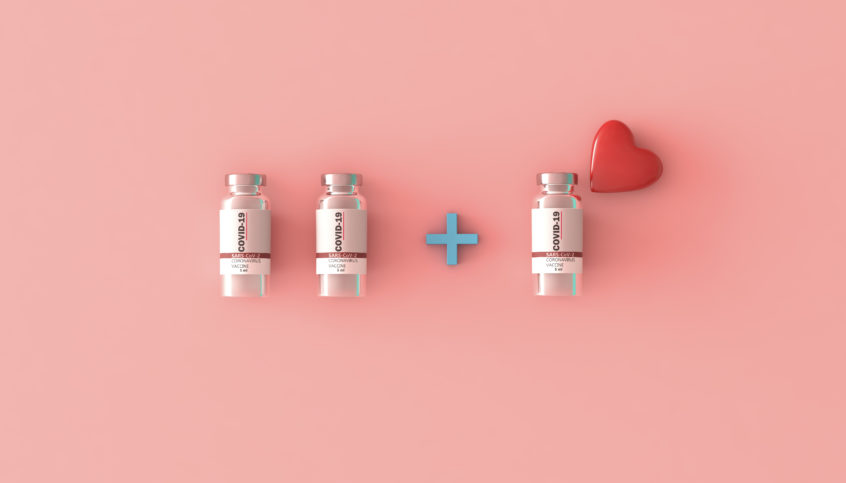With so many vaccinated and unvaccinated people being infected by COVID-19 lately, you’ve probably questioned the need for a 3rd dose or “booster” shot, at all. If you’re likely going to get the virus anyways, why go through the hassle of attending a clinic and getting another poke in the arm?
Well, this is what we know, for sure:
- Two doses of the vaccine are providing really great protection against severe illness due to the Omicron variant
- Far fewer individuals in Ontario are needing to access intensive care because of the two-dose vaccination (which is keeping many more ICU beds open to people of all ages who need them due to life-threatening health issues and emergencies unrelated to COVID-19)
However, a recent study (one that took place right here in Ontario) showed that the effectiveness of the COVID-19 vaccine decreases following a 2nd dose and increases following a 3rd dose. So, getting your 3rd dose really does help to restore and maintain solid protection against infection and helps reduce your risk of severe illness due to COVID-19. We’re talking being down and out for weeks here folks, and ain’t nobody got time for that.
Think of receiving your booster dose like bringing your car in for a regular maintenance check. Everything may be doing alright, but getting your tires pumped, oil changed and taking a peek under the hood ensures further safety down the road.
But what if you were one of those individuals who were infected with COVID-19 after getting your 2nd shot? Is a booster dose still necessary for you, too?
We checked with the experts and received an overwhelming: “Yes!”
Not only that, but they are also pretty clear about when you should receive that vaccine, post infection, too. Both the National Advisory Committee on Immunization (a.k.a. “NACI” – the head honchos of expertise when it comes to all things immunization in Canada) and the Ontario Ministry of Health recommend that anyone receiving a booster dose after getting COVID-19, wait for three months after their symptoms started (or three months after testing positive, if no symptoms were experienced) before receiving a booster. Same goes for youth aged 12 to 17, as long as it has been at least 184 days after receiving their 2nd dose.
So, although for the time being certain restrictions are being loosened and specific policies (like the vaccine passport, for instance) have been paused – the truth remains that receiving your 1st, 2nd and 3rd dose provides you the absolute best protection against becoming seriously ill from COVID-19. As always, the choice to receive your immunization remains your own. For more information on the COVID-19 vaccine or to book into an upcoming clinic, visit COVID-19 Vaccine – CK Public Health (ckphu.com)

